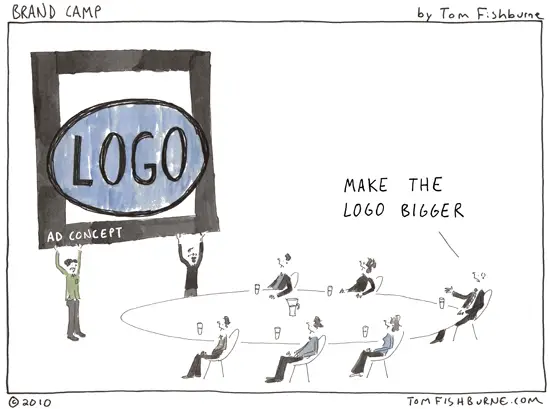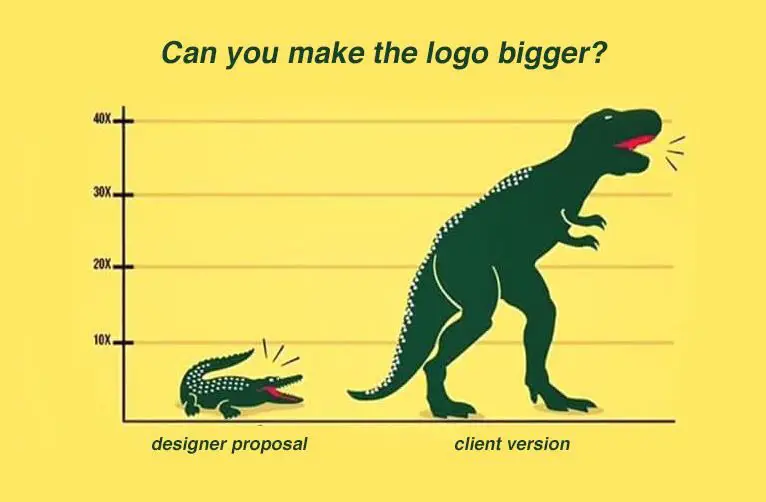Marketing is a tough field to work in. You have to be creative, strategic, analytical and many more things. There are many things that make your career in marketing challenging each day, some that serve to make us better marketers and others that just are just annoying!
When we think of marketing we might think the worst things about working in marketing are the constant pressure of deadlines or how you never know if your next campaign is going to succeed. These are all valid reasons, but we’ve put together our six picks of what we feel are the worst things about working in marketing.
Contents
- 1 Everyone has an opinion on marketing
- 2 People expect you to know everything
- 3 Unrealistic expectations
- 4 There is so much to learn!
- 5 Deciding what career path you want to go down
- 6 Constant changes
- 7 High-Pressure Deadlines
- 8 Work-Life Balance
- 9 Client Expectations
- 10 So, is Marketing a Good Career and is it for you?
Everyone has an opinion on marketing
Marketing is one of those areas people love to have an opinion on. Whether it’s what photos to use in the brochure, what background music to use in the new corporate video or the age-old classic, suggesting the logo should be bigger.


There are many reasons why people might be frustrated with marketing and having people second guess your work constantly or suggest changes is one of them.
Marketing is a field that is ever-evolving and changing. With the advent of new technologies, marketing campaigns are becoming more and more complex and marketing professionals are constantly having to update their knowledge and follow the trends in the marketplace.
It’s not enough to have an opinion on marketing, you have to know what you’re talking about and this is where a lot of frustration can come from.
People expect you to know everything
There are many expectations that people have of marketing professionals. They expect you to know everything about marketing, to be able to do everything, and to know all the latest trends. This is unrealistic.
Marketing is a vast field with many different aspects, so it’s very difficult for one person to know everything about it. Sure, you might have a basic understanding, but to master every field of marketing is one huge challenge.
If you work for a larger organisation you might have the luxury of focusing on one or two specific areas within marketing such as events or SEO. But for those working in small marketing teams or in small organisations, as a marketer, you have to wear many marketing hats.
Fortunately these days there are a ton of online resources where you can learn every aspect of marketing. Check out places like Google Digital Garage, Udemy, Khan Academy and YouTube.
Unrealistic expectations
Marketing careers are rigorous and demanding, to say the least. In many cases, it’s common for a boss to have unrealistic expectations of you. They might be looking at your work from a purely quantitative perspective and evaluating you based on how much success you can produce in a given time period and how many dollars you add to the company’s bottom line.
In a world where everything is measurable, it’s not surprising that bosses would want to see numbers. However, this can lead to the neglecting of other important successes of ones work, such as building a social media following, building brand loyalty, raising awareness of a new product or even supporting with internal communications of product and service changes around the organisation.

Other unrealistic expectations include expecting you to do duties you wouldn’t normally do or might not even consider being within your marketing remit. A classic example of this is graphic design or video editing. Sure, plenty of marketers will dabble with tools like Canva, but true graphic design and video production/editing is a skill and an art in themselves that people spend years perfecting.
Lots of marketers love to learn new skills and the opportunity to improve their graphic design abilities will be treated with enthusiasm, but often in smaller organisations these conversations with bosses can become trickier when you tell them you’re going to need time to learn these skills and need additional funds to purchase things like an Adobe Photoshop licence or expensive digital camera for taking high-end photography and video. The alternative would be that these tasks be outsourced but at a premium.
There is so much to learn!
Marketers love their job. They love getting creative, building new ideas and formulating campaigns. But for those who work in an environment where you need to have a knowledge of all areas of marketing, there is just so much!
If you are part of a one-person marketing team or even part of a small team that doesn’t have the budget to outsource work, these are some of the responsibilities you could have to manage:
- Website design
- Blog content creation
- Social Media management and content creation
- Search Engine Optimisation
- Email Marketing
- Events Marketing
- Campaign creation and management
- Building a marketing strategy
- Advertising
- Graphic design
- Creation of marketing literature
- Copywriting
- E-Commerce
- Replying to customers via social media and website
The list can go on further from here for a marketer working for an organisation with limited resources or unrealistic demands. Sure, learning new things is fun, but sometimes fitting in the learning while managing your other duties during the working day can be extremely tough.
Deciding what career path you want to go down
Marketing is a broad field that has many different areas to explore. It is important to think about what you want from your career and what skills you have before deciding on a specific area of marketing.
The first step in deciding what area of marketing to work in is to think about what you want from your career and what skills you have.
Do you want a job that will make you happy? Then perhaps you might want to work in one of the more creative sides of marketing.
Do you want a job that will allow for personal development? Then perhaps you might want to consider a route into marketing management.
What are the things that interest or excite you the most? These are all questions that need to be answered before deciding on an area of marketing.
For newcomers looking at getting into marketing, you might find our article How To Get Into Marketing Without Any Experience useful.
Constant changes
The marketing industry is one of the fastest evolving industries out there. Constant changes, developments and updates take place all the time, so marketers have to adapt to them accordingly to be successful.
In order to keep up with the pace of this industry, marketers should invest time in learning new skills and refreshing their knowledge on a regular basis. This way they can always stay ahead of the competition and develop their careers into something that they will be happy with.
The growth of technologies has influenced marketing in many ways, reaching to new heights in terms of how it can be approached and looked at. It is imperative for marketers to have current knowledge of the latest trends so they are ready to take on new challenges. There are many opportunities available for those who want to develop their careers within marketing, but adaptability and a commitment to learning is a must to achieve long term success.
High-Pressure Deadlines
Marketing often involves managing multiple campaigns with overlapping timelines, requiring quick turnarounds and precise execution. These deadlines are non-negotiable as campaigns are frequently tied to specific events, product launches, or seasonal promotions.
Unexpected challenges, such as last-minute client changes, technical issues, or market shifts, can add to the pressure. Marketers must be adept at problem-solving and adaptable to ensure that campaigns are delivered on time, maintaining quality and effectiveness despite any hurdles.
This high-pressure environment can lead to significant stress and requires excellent time management and organizational skills. Marketers must be able to prioritize tasks, delegate effectively, and remain calm under pressure to succeed in such a fast-paced field.
Skills that good marketers have include:
Effective Planning: Breaking down projects into manageable tasks and setting realistic deadlines.
Prioritization: Focussing on high-impact activities and managing time efficiently.
Team Collaboration: Leveraging team strengths and communicating clearly to ensure everyone is aligned and on schedule.
Stress Management: Practicing stress-relief techniques such as mindfulness, exercise, and taking regular breaks to maintain mental health and productivity.
By recognizing and preparing for the high-pressure nature of marketing deadlines, professionals can develop strategies to manage stress and deliver successful campaigns.
Work-Life Balance
Marketing roles, especially during campaign launches or major projects, often demand long hours and intense focus. The pressure to meet tight deadlines and achieve campaign goals can extend workdays well beyond regular office hours.
Maintaining a healthy work-life balance can be challenging in such a high-demand environment. Personal time and self-care may be sacrificed to meet project demands, leading to burnout and decreased job satisfaction over time.
Good marketers look to use these strategies for balance:
Setting Boundaries: Clearly defining work hours and stick to them as much as possible.
Time Management: Prioritizing tasks and delegating when necessary to manage workload efficiently.
Taking Breaks: Regular breaks and time off are essential for maintaining mental and physical health.
Communicating Needs: Discuss workload and deadlines with supervisors to find a manageable balance.
Client Expectations
Managing client expectations is often one of the most challenging aspects of marketing. Clients may have ambitious goals or demands that are not feasible within the given budget or timeline. These unrealistic expectations can create tension and put pressure on the marketing team to deliver results that may be unattainable.
Satisfying clients while maintaining the integrity of the campaign requires a delicate balance. Marketers must use diplomatic skills and patience to negotiate and communicate effectively. It’s crucial to set realistic expectations from the beginning, providing clear, evidence-based explanations of what can be achieved and within what timeframe.
Clear communication is essential in ensuring that all parties understand the goals, timelines, and limitations of the project. Regular updates and transparent discussions can prevent misunderstandings. Educating clients about the marketing process, including the time and resources required for different tasks, is also important. Providing case studies and data can help set realistic expectations.
Developing strong negotiation skills is crucial for finding a middle ground that satisfies the client while remaining feasible and ethical. This includes being able to diplomatically explain why certain demands may not be achievable and offering alternative solutions. Finally, clearly documenting all agreements and expectations is vital to refer back to them if disputes arise, ensuring that both parties are on the same page throughout the project.
By managing client expectations effectively, marketers can build strong, trusting relationships and deliver successful campaigns that meet realistic goals.
So, is Marketing a Good Career and is it for you?
Working in marketing offers a dynamic and rewarding career path filled with creativity, innovation, and the satisfaction of driving successful campaigns. The field provides opportunities to develop diverse skills, work on varied projects, and make a tangible impact on a company’s success. Marketing professionals often enjoy the excitement of launching new products, devising innovative strategies, and witnessing the direct results of their efforts. Additionally, the collaborative nature of marketing allows for networking and relationship-building within the industry.
However, marketing also comes with significant challenges. Tight deadlines and high-pressure environments are common, particularly during campaign launches or major projects. The need to manage client expectations and balance creativity with data-driven decision-making can be stressful. Rapid industry changes require continuous learning and adaptation, which can be overwhelming. Moreover, long hours and demanding workloads can impact work-life balance, leading to potential burnout.
To thrive in marketing, one must be adaptable, resilient, and possess strong communication and problem-solving skills. A successful marketer is highly organized, able to balance creativity with analytical thinking, and stays updated with the latest industry trends. Effective time management and the ability to work under pressure are essential. Diplomatic skills and patience are crucial for managing client relationships and expectations.
Ultimately, if you enjoy a fast-paced, ever-evolving work environment and are passionate about influencing consumer behavior, marketing could be a fulfilling career choice for you. The ability to think creatively, analyze data, and communicate effectively will serve you well in navigating the challenges and reaping the rewards of a career in marketing.
Still interested? Check out Get a Job in Marketing Without Experience in 2024









